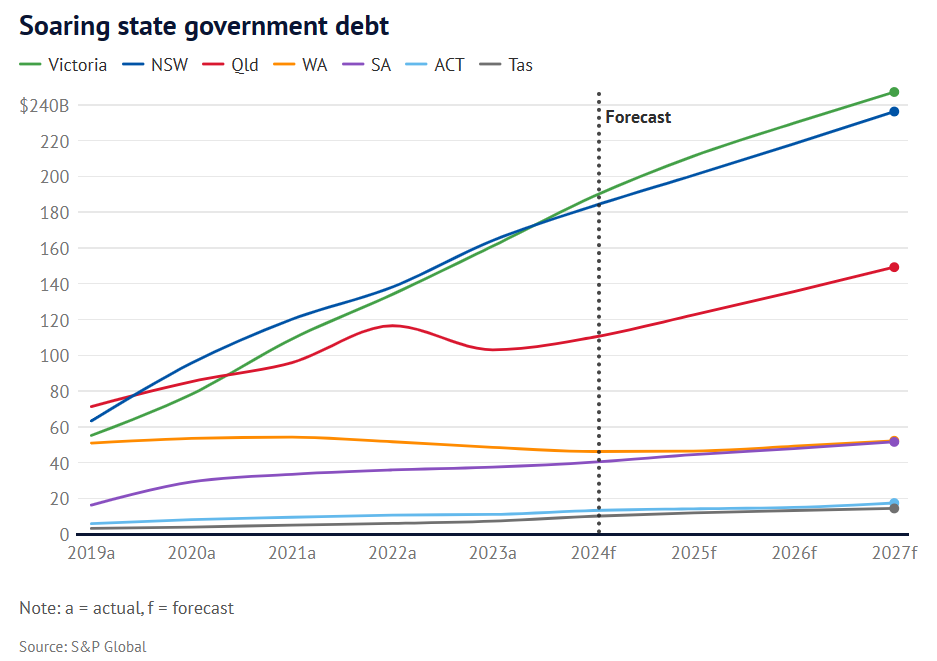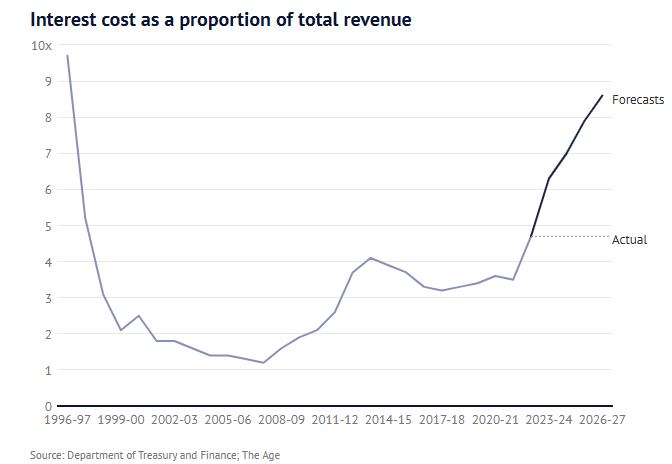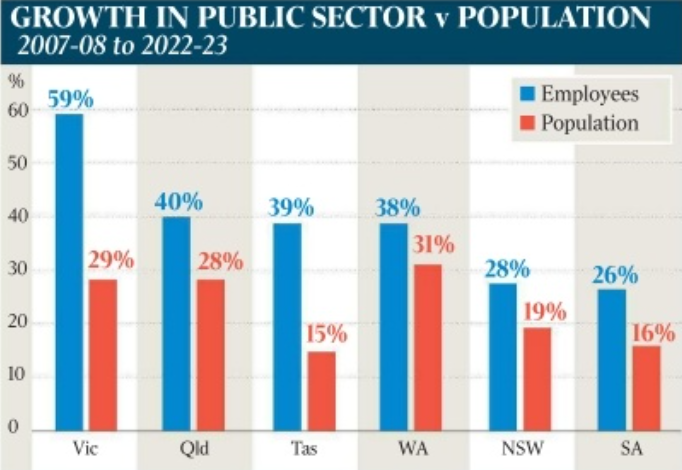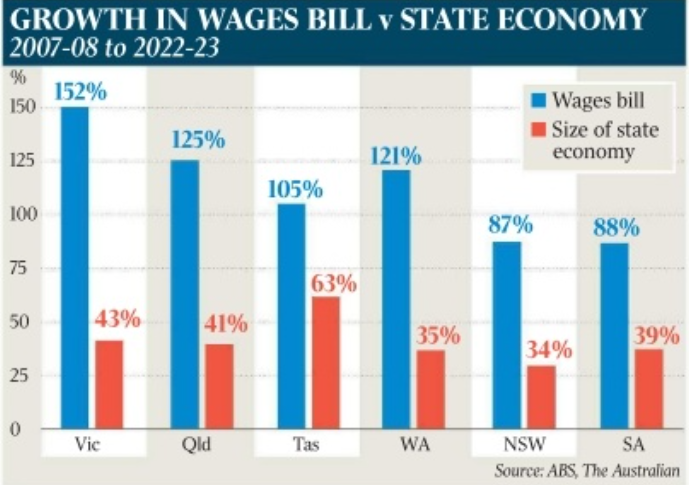Victoria has the nation’s most indebted government and the lowest credit rating.

Victoria’s ballooning debt has helped to drive up interest payments:

One of the reasons why Victoria is drowning in debt is the bloating of the state’s public service.
Victoria’s public sector workforce grew by 59% in the 15 years to 2022-23, easily exceeding the 29% growth in the state’s population:

Source: The Australian
Victoria’s public servant wage bill ballooned by 152% over the same 15-year period, easily outpacing the rest of Australia:

Source: The Australian
As of May 2024, the average full-time weekly earnings of a Victorian public servant were $2,130, about $48 more than in New South Wales ($2,082).
The average total earnings of a Victorian public servant ($1,767) also exceeded those of New South Wales ($1,757).
This is despite New South Wales having much higher housing and living costs than Victoria.
By 2027-28, Victoria is expected to spend $40 billion annually on public sector wages.
Figures released to Victoria’s Public Accounts and Estimates Committee show that the cost of ministerial staffers under the government of Jacinta Allan was set to rise to more than $55.3 million for the year to 30 June, exceeding the previous record set in 2022 by over $1.8 million.
The cost of Allan’s Private Office (PPO), which employs 78 people, was tipped to rise to an estimated $16 million, with the cost of ministerial staff soaring under former premier Daniel Andrews.
The growing cost of Andrews’ private office became a keen area of interest for former Ombudsman Deborah Glass, who noted in a 2023 report that the PPO, which then had more than 84 staff, was larger than the Prime Minister’s office and the NSW Premier’s office combined.
In comparison, the Victorian Opposition’s office had only 16 staffers as of 31 March, costing taxpayers $2.3 million.
Clearly, if Victoria is to control its financial situation and avoid a credit rating downgrade, rising interest payments, more taxes, and degrading public services, the government must cut the bureaucracy without affecting front-line services.
Much of Victoria’s bureaucracy is needless and wasteful. A clean-out and rationalisation are sorely required.

